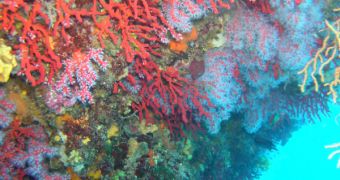While there still are those who say that global warming is a hoax or an elaborate “plot” for some obscure reason, the reality is that the world is currently facing one of its biggest challenges since the last major extinction, and the United Nations warns that, if something is not done to repair the situation immediately – as in, curb greenhouse gas (GHG) emissions substantially – we might witness the demise of more than a quarter of world species, as well as of the global coral reef populations, within a matter of decades, and not centuries.
Already, more than 19 percent of the world's reefs are dead, with corals in most parts of the world endangered as well. The Global Coral Reef Monitoring Network announced during the Poznan Conference that only 45 percent of the world's reefs were currently healthy, and that studies were underway, to determine precisely why some corals survived, while others died or bleached.
Though they may seem of little significance, the reefs are what keeps the ocean going, in that some 25 percent of all fish species in the ocean reside in their “shadows.” And as zooxanthellae, the tiny organisms that give the corals their beautiful colors, continue to separate from the reefs and drift into the warming oceans, they die and kill the reefs along with them.
But corals are not the only species threatened by an ever-worsening state of the ocean. The International Union for Conservation of Nature (IUCN) announced that 17038 animal species, out of a total of 44,838, were currently threatened, and therefore protected. Some 22 percent of all mammals, 31 percent of amphibians, and 14 percent of birds that live worldwide are either in serious danger or already extinct, over the course of the past few decades.
The underlying cause for this is human activity, the expansion of human habitat in forests, and the pollution of the ocean, both with chemicals and noise. The amounts of carbon dioxide that are emitted in the atmosphere every day are sufficient to trigger a global warming effect so powerful that most species in the world would be unable to cope with the changes. And, in nature, poor adaptation means death.

 14 DAY TRIAL //
14 DAY TRIAL //